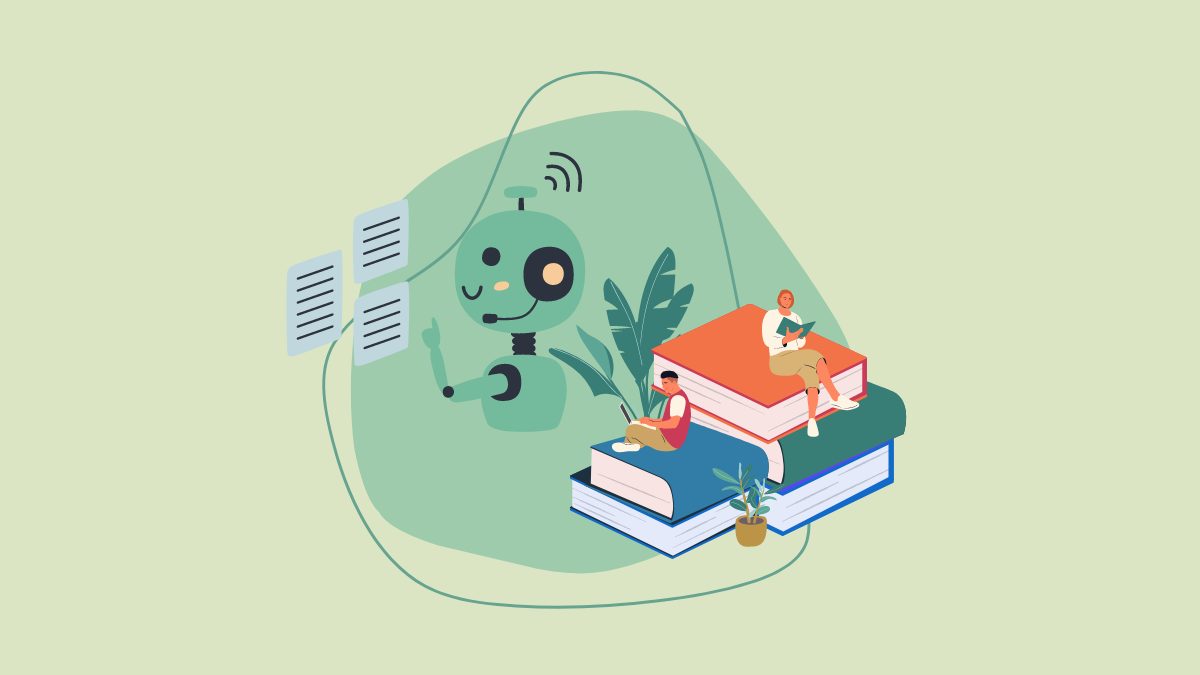In the bustling metropolis of modern technology, ChatGPT has emerged as a dazzling skyscraper. Like any other tool, ChatGPT started as a mere concept, a glimmer in the eyes of its creators, and it grew, fueled by innovation and curiosity. But, oh boy, what a growth it has had (even though it's just the beginning). It isn't just another AI model anymore; it's become a phenomenon, a game-changer, a revolution – it's a downright Gandalf guiding us through the Middle Earth of machine learning!
It has emerged as a symbol of endless possibilities. Everyone can leverage ChatGPT's capabilities if only they know how to do it right. Why should research not be one of them? In fact, not using ChatGPT can put you at a disadvantage than your peers who are using it. In the world of research, where you have to juggle so many responsibilities, from conducting experiments to writing research papers to analyzing the data, ChatGPT can help take the load off your plate.
Using ChatGPT for Research
ChatGPT can prove to be an excellent companion for research, no matter what your purpose. Whether you're a student who wants help with essays or a scientific research student who wants to make the process a little bit easier, ChatGPT can help. But it all boils down to using this AI bot ethically and responsibly. Let's get going.
Use ChatGPT to Define Your Research Question or Hypothesis
Embarking on a research journey is akin to setting out on an expedition, and the first step is to chart your course by defining your research question or hypothesis – the one you're aiming to explore, prove, or disprove.
If you thought we were only going to use ChatGPT's capabilities for writing, you were wrong. ChatGPT can prove helpful even during this first crucial step of your journey. You can query it for information, delve into the broader context, and explore various facets of your subject.
Moreover, ChatGPT can do more than just provide information; it can also help sharpen your focus. By understanding the broader context, you can pinpoint more specific and relevant questions. It's like having a conversation with a scholarly scout who never tires of your questions, so you can keep going back and forth as much as you require until you are sure you have thought about the problem from every possible angle.
Use ChatGPT to Conduct Literature Review
Anyone going on a research expedition needs to go on a journey to review the literature, which is often the most time-consuming part. However, with ChatGPT as your first mate, the voyage becomes an enlightening adventure.
ChatGPT can swiftly provide summaries and overviews of existing research. Before diving deep into any work, you can use ChatGPT to get an inkling of whether you are headed in the right direction.
Then, once you're sure, turn to the original sources for the detailed and accurate information that lies in them.
Use Plugins:
With the addition of Plugins, there are plenty of your tools at your disposal that can help you summarize PDFs, links, and even videos.
Scholar AI is one such plugin that can help you break down scientific research and peer-reviewed papers easily. Research by Vector is another ChatGPT plugin that can help you with academic research. You can even save the references to citation managers for seamless citation. Everyone knows that an academic paper without proper citations is worthless.

If the literature you're reviewing is in the form of a PDF, you can use the AskYourPDF plugin that lets you "chat" back and forth with the contents of the file.

You can find more useful plugins below.

Use ChatGPT for Data Analysis
If your research involves gathering data, you should not replace the hands-on work of data collection with ChatGPT. But once the data is collected, you can use ChatGPT for analyzing and interpreting the data. Though specialized tools are usually required, ChatGPT can prove a good starting point.
And with the help of plugins like Wolfram and ShowMe, you can also create visualizations for your data in a matter of seconds.

Using ChatGPT for Writing
Everyone knows ChatGPT can help you with the writing part of your research. But to make sure that you don't end up with garbage that grossly breaches the moral code of conduct for your writings, here's a quick framework to adopt.
1. Brainstorm and Create an Outline Yourself
Don't Rely Solely on ChatGPT to Get Started. The journey of a thousand miles begins with a single step, and in the world of research, that step is brainstorming. Before you even think about ChatGPT, let your mind wander. Relying on AI from the get-go can make your brain take a back seat, also known as idea laziness. It's like using a calculator for 2+2; you know you can do it yourself!
An outline created by you is like a fingerprint; it's uniquely yours. Grab a pen and paper or open a blank document. Write down your main topic, and start jotting down subtopics, questions, and ideas. Think of it as planting seeds that will grow into a lush garden of knowledge.
Creating an outline before turning to ChatGPT also helps you cover your bases. ChatGPT has certain biases and restrictions, and it won't include certain point-of-views in your outline. Brainstorming yourself first ensures that you think about the problem from every angle.
2. Ask ChatGPT to Create an Outline to Complement Your Own
Use ChatGPT's Outline to enhance your work. Now that that's out of the way, it's time to enlist ChatGPT's help. Leveraging ChatGPT after forming your initial thoughts can offer fresh perspectives and fill in gaps in your understanding.
Ask ChatGPT for an outline or insights based on your research question. Compare ChatGPT's outline to your own. Identify areas where it offers novel insights or different perspectives.
Then, integrate both outlines. Combine your personal insights with those from ChatGPT to create a more robust and comprehensive outline.
3. Use ChatGPT to Write Each Section Separately
Now that you have your outline that combines the best of both worlds, it's time to get down to the business of creating your first draft.
With the outline ready, you've essentially got the skeleton of your masterpiece. Now, it's time to carve the rest of the flesh. But if you simply ask ChatGPT to create the draft based on the outline by itself, it won't produce content befitting your essay or thesis.
Instead, create separate prompts for each section of the outline and ask ChatGPT to write a few paragraphs or words on it. You can even ask it for insights or examples for the different parts. And the best part is that you're the one in control. You get to decide which part needs more consideration.
4. Verify the Information
ChatGPT's Achilles heel? It hallucinates and can make up information and even sources that never existed. So, you need to take anything that ChatGPT says with a grain of salt.
Moreover, it only has information up to the end of 2021. And with OpenAI having temporarily disabled the 'Browse with Bing' model, it no longer has access to recent information, even for ChatGPT Plus subscribers.
So, when it comes to working on recent topics, it becomes that much useless. Sure, some of the recent information, especially in academic settings, can be accessed via plugins, but it isn't always foolproof.
Bottomline? any information that you get from ChatGPT should be verified from reputable sources. Even in cases where it "cites" the sources, you need to make sure that it hasn't simply made up the sources.
5. Write the Essay/ Thesis Yourself and Use ChatGPT for Revisions
Now that you have an outline and trusted information, you should write the major part of the essay/ thesis yourself to retain your original voice throughout. You can ask ChatGPT for help in improving clarity, coherence, and argument strength. It can help with things like Grammar and translation.
And at any point where you aren't clear about something, ChatGPT can help with examples/ explanations. That's a place where it can really shine. You can even prompt it with "Explain it to me like I'm 5 years old" to get simple explanations.
ChatGPT can prove to be an amazing tool to have in your arsenal but remember that it cannot do your work for you. If you use ChatGPT lazily for your research, you can end up with inaccurate/ incomplete data. And using it solely for your writing can get you in trouble as it's easy to spot it when something is written entirely by an AI. But using ChatGPT as your helper can give you the edge you need.


